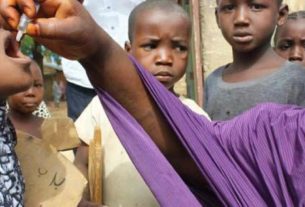🩺 Geneva, July 8, 2025 — In a landmark decision, Switzerland’s drug regulator Swissmedic has approved Coartem Baby, the world’s first malaria treatment specifically formulated for newborns and infants weighing less than five kilograms. The approval addresses a critical gap in malaria care for the youngest and most vulnerable patients in regions where the disease remains endemic.
📊 Clinical Breakthrough Developed by Novartis in collaboration with the Medicines for Malaria Venture (MMV), Coartem Baby was proven safe and effective in late-stage clinical trials. The formulation features:
- A tailored dose and ingredient ratio for infants under 5 kg
- A sweet cherry flavor to aid administration
- Solubility in breast milk for easier delivery
Until now, infants were treated with modified doses of antimalarial drugs intended for older children, increasing the risk of side effects due to immature liver function and metabolism.
🌍 African Rollout Expected Eight African nations—Burkina Faso, Ivory Coast, Kenya, Malawi, Mozambique, Nigeria, Tanzania, and Uganda—are expected to swiftly approve the medicine under Swissmedic’s Marketing Authorization for Global Health Products procedure. Novartis plans to distribute Coartem Baby on a not-for-profit basis, beginning this autumn.
📉 Malaria Burden According to the World Health Organization, malaria caused 597,000 deaths in 2023, with three-quarters occurring in children under five. An estimated 36 million pregnancies occurred in malaria-endemic African countries last year, with one in three mothers infected during pregnancy—raising the risk of neonatal transmission.
🗣️ Expert Voices Dr. Lutz Hegemann, president of Novartis Global Health, emphasized the urgency:
“Every one of those babies is a potential target for malaria infection. We don’t want to leave any patient behind, no matter how small they are.”
Dr. Quique Bassat, of the Barcelona Institute of Global Health, called the approval a “big step” for neonatal care:
“Now we have something perfectly suitable for that specific age group where there was a gap.”
🔬 Funding and Research The clinical trial, known as the CALINA study, was supported by the European Union and the Swedish International Development Cooperation Agency, and conducted across multiple African countries.
This approval marks a significant advance in global health equity and child survival, offering new hope in the fight against one of the world’s deadliest infectious diseases.



